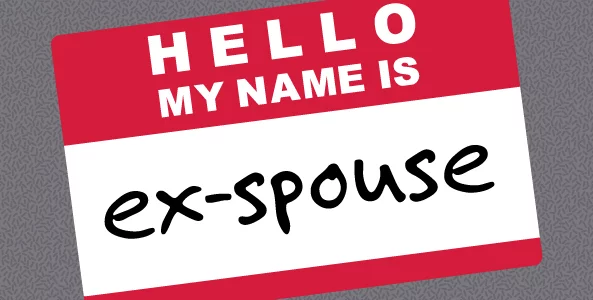Married women who have taken their spouse’s last name are faced with an additional decision during the process of divorce: Should I take my maiden name back?
Why You May Be Hesitant
For some divorcing women, this may seem like a small issue in the course of terminating a marriage. There are already many overwhelming changes and stresses happening all at once. These changes affect your relationship status, your finances and your residence. Your future is shifting and you may not want to add your name to that list of changes.
Your feelings about your name may change from the time your divorce becomes final to later in the future. Changing your last name may be an issue you don’t want to consider during such a chaotic time.
How to Give Yourself the Option
Your maiden name is an important consideration as you head toward the future. You can take as long as you want to make that decision as there is no time-frame in which you have to decide.
If you are not ready to make the decision of changing back to your maiden name during your divorce proceedings, your attorney or mediator can still help you with the option in the final judgment order. Consider including the option in the final judgment order. This eliminates the need for you to return to court for a hearing if or when you decide to legally change your name in the future.
Make sure to request five certified copies of your final judgment of dissolution of marriage from the clerk of the family court. By requesting these documents early on, you will have them readily available to quickly start the process of your name change if or when that time comes.
When You are Ready to Reclaim Your Name
Whether you decide to take back your maiden name when your divorce is final or in the future, you will need to change your name on important identification documents such as your:
- Driver’s license
- Social security card
- Passport
Saying goodbye to your married name and reclaiming your maiden name is an emotional and personal choice. The proper guidance of your attorney or mediator can prevent future court hearings. Anticipating the need for government document requests will ease the process if you decide to return to your former last name. This decision is completely your own.
Once you have determined that you are ready to reclaim your maiden name, the steps to officially change your name are just the beginning. Beyond the formalities of updating your driver’s license, social security card, and passport, there are numerous considerations and actions to undertake to ensure a smooth transition back to your maiden name.
Notifying Institutions and Updating Documents
After the legal name change, it’s essential to notify various institutions and update your information accordingly. This includes banks, credit card companies, employers, insurance providers, utility companies, and any other entities that have your name on file. Updating your name with these institutions may require providing a certified copy of your final judgment of dissolution of marriage or an updated social security card.
Professional Considerations
If you have established a professional identity under your married name, consider the potential impact of changing your name on your career. This may involve updating your resume, LinkedIn profile, business cards, and professional licenses. Informing your employer and professional network about your name change is crucial to maintain continuity in your professional life.
Personal and Social Adjustments
Changing your name back to your maiden name also means adjusting your personal and social identity. This includes updating your email addresses, social media profiles, and informing your friends, family, and acquaintances of your name change. While this process can be time-consuming, it’s an important step in reestablishing your personal identity.
Emotional Significance
Reclaiming your maiden name can carry significant emotional weight. It may symbolize a fresh start, a return to your roots, or a reassertion of your individuality. It’s important to acknowledge and process these emotions as part of your journey post-divorce.
Legal and Financial Implications
Consider the legal and financial implications of changing your name. This may involve updating your will, power of attorney, and beneficiary designations on insurance policies and retirement accounts. A name change can also affect your credit report, so it’s wise to monitor your credit score and report any discrepancies.
Tips for a Smooth Transition
- Create a Checklist: Make a comprehensive list of all the places and documents that require updating. Tackle them one at a time to avoid feeling overwhelmed.
- Use a Professional Service: Consider using a professional name change service to streamline the process. These services can help with the paperwork and provide guidance on whom to notify.
- Be Patient: The process of changing your name and updating all associated documents can be lengthy. Be prepared for it to take several weeks or even months to complete.
- Celebrate the Change: Reclaiming your maiden name is a significant milestone. Consider celebrating this new chapter in your life with friends and family.
Deciding to reclaim your maiden name after a divorce is a deeply personal decision that carries both practical and emotional implications. It’s a step towards embracing your identity and starting anew. While the process involves numerous steps and considerations, proper planning and support can make the transition smoother and more meaningful. Remember, this decision is entirely yours, and it’s an opportunity to redefine yourself on your own terms.
 Reviews
Reviews 
